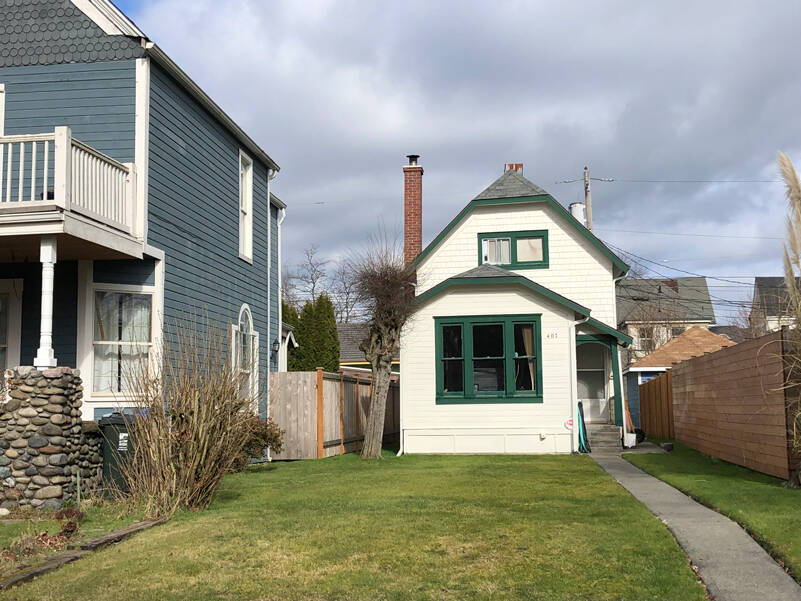By Morf Morford, Tacoma Daily Index
Housing – what it costs, who has it and who doesn’t has been a burning, literally front page issue recently.
Every news show, social media format and many neighborhood conversations revolve around housing and its many permutations.
Home ownership is central to citizenship, neighborhood identity and, as we have heard endlessly lately, stable and generational equity and wealth.
Most of us take for granted what we believe are the basic rules of home ownership; find a realtor, pick a house, set up funding and, with a few other steps, sign some papers obligating us to decades of payment and move in.
Home prices and interest rates are, of course, key factors – and seem immovable, almost divinely ordained.
But all of that has not always been true. And it is not as necessary as most of us have come to believe.
It’s complicated
Home ownership is complicated – very complicated.
Shelter is either temporary or relatively permanent.
Permanent shelter presumes stability – of income and commitment to the area and community.
Permanent shelter is generally what we think of when it comes to stable family, often multi-generational, housing.
In other words, home ownership is predicated on decades, even generations, not months or years.
Income and accumulated assets accrue slowly. And shelter is generally needed semi-immediately.
Enter the mortgage
How to pay for something you need now – and, presumably, for many years to come, on an income that comes (at best) on a slow but mostly regular basis is a financial balancing act that people have been negotiating for centuries – if not millennia.
Until death do us part
You might have thought that phrase was from traditional marriage vows. But it’s literally what a home mortgage presumes.
If you know French at all, or even some familiar English words, you know that he word “mortgage” is related to words like “mortal” and “mortuary” and it comes from the Old French word “mortgage” which means “dead pledge”.
The word “mort” means “dead” in French and comes from the Latin word “mortuus”. The word “gage” means “pledge”.
As a direct translation, the word mortgage is French for pledge until death; either of the parties involved or the contract itself is concluded.
Sometimes it feels that way.
And yes, many mortgages outlast their owners, and more than a few of their marriages.
Banks to the rescue
You can only have long term loans (mortgages) for individuals and families if you have even longer term financial institutions.
Banks were originally local. VERY local. Credit unions came later and were (and mostly still are) connected to worker’s unions as in teachers or other industries.
Until 1934, when President Roosevelt signed the New Deal, which established the National Housing Act of 1934, mortgages routinely required a 50% down payment and offered a five-year amortization period.
In other words, if you wanted to buy a $200,000 house, you would pay a $100,000 down payment, and have five years to pay the rest.
Five years was the standard mortgage time frame until the 1930s. Then fifteen. Then thirty.
To put it mildly, a lot can happen in five years. Or fifteen. Or thirty.
In 1945 VA loans were established – which led to a huge boom in housing construction and home ownership.
As part of the GI Bill, VA loans featured low interest rates and VA mortgages required very low down payments – often less than 10%.
And now…
About 65.5% of us are currently homeowners – most of us thanks to a mortgage.
Down payments have been reduced, and interest rates float – they were 11% in the 1990s and then low (about 3%) just a year or two ago.
In 1980, Adjustable Rate Mortgages (ARMs) were created to help borrowers renegotiate if interest rates declined.
Housing impacts us all. It’s the focal point of our relationships, our family histories and is our primary financial obligation.
And it is home.
As we all should know, swings of the housing market, from prices to interest rates to material and labor costs directly impact who can afford what. And where. And for how long.
Fun fact: Money lending (loaning with high interest – also known as usury) is considered a serious sin in traditional Jewish law. “Making a profit off a loan from a poor person is exploiting that person” (Exodus 22:25–27).
Usurers had a special place in the seventh (near the most heinous) circle of Hell, according to Dante’s Inferno.
As a refresher; Dante outlined nine levels of Hell from gluttony and lust and greed to the more serious sins of violence and fraud. Usury is in the same category as fraud.





